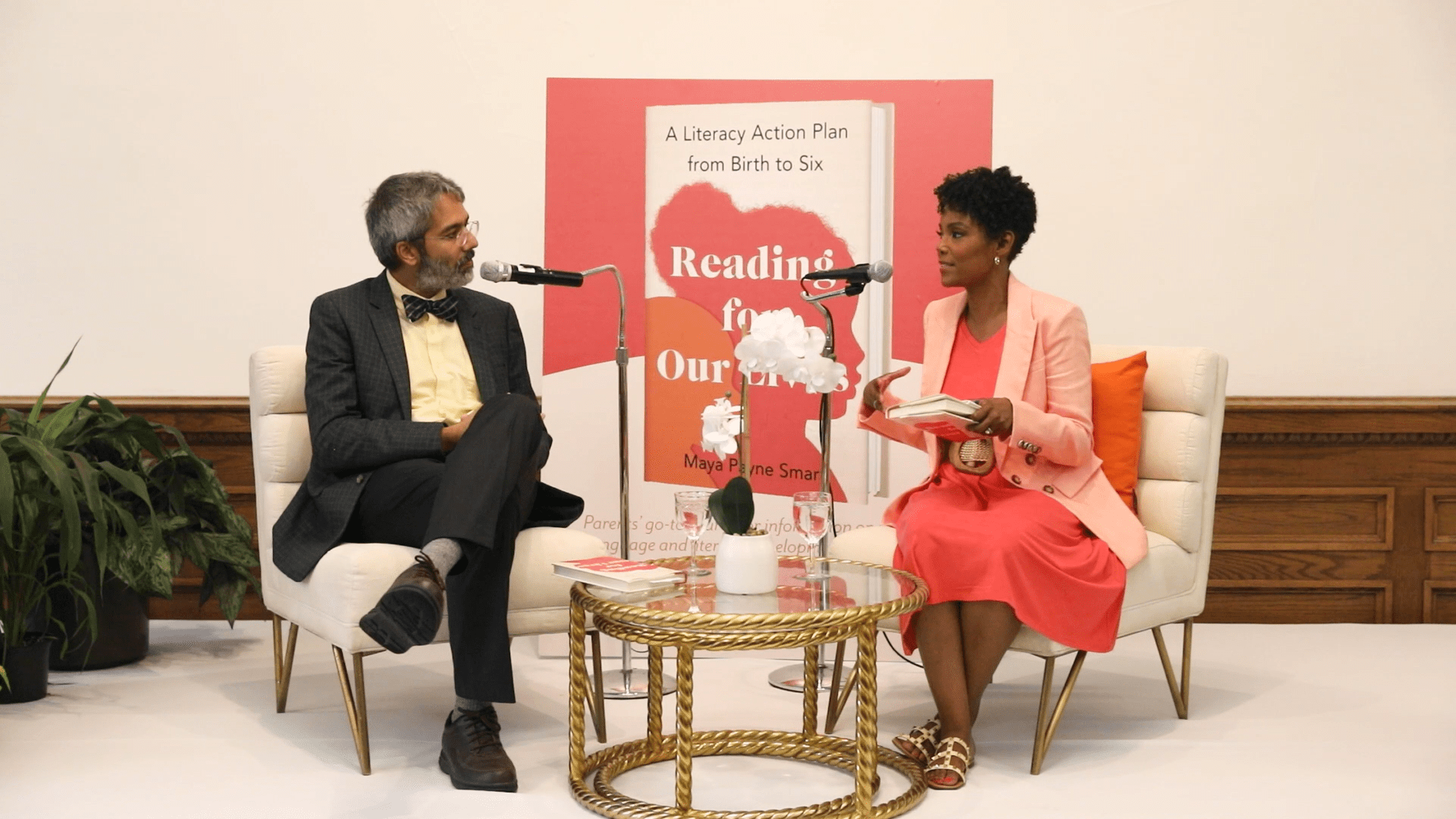Milwaukee Public Library’s beautiful Centennial Hall offered a stellar setting for the Reading for Our Lives launch party. An anchor institution in our community, the library lives its vision to build healthy families and vibrant neighborhoods every day by helping people read, learn, and connect. It offers a wonderful children’s book collection, countless online resources for families, and stellar local outreach programs—including the award-winning Ready to Read initiative, which gives hundreds of infants and toddlers the early literacy support and experiences they need. Celebrating the launch of a book about nurturing the next generation of readers in partnership with the library made perfect sense.
Milwaukee as a city was also a fitting location for the book launch because Wisconsin features the nation’s largest gap in academic success between black and white children. When I was a new mom more than a decade ago, news reports about disparities like these first sparked my curiosity about how reading unfolds and why so many black children never attained the levels of literacy they needed to thrive. I sought answers by scouring academic literature, reading curricula, state learning standards, government reports. I talked to teachers, tutors, and parents in the thick of raising readers, as well as researchers immersed in exploring its underpinnings. I served on school, library, and literacy nonprofit boards; volunteered in early-learning programs; and developed databases of research and instructional techniques. I learned a great deal, much of which I share in Reading for Our Lives to help all parents do what we can to foster reading development.
At the launch party, I was heartened to see the room filled with parents, teachers, librarians, and community members of all stripes, united around the idea of supporting families and the next generation of readers in their care. The program included introductory remarks from Milwaukee Public Library Director Joan Johnson and Boswell Books owner Daniel Goldin, a reading by me from the book, an inspiring and informative conversation with Dr. Dipesh Navsaria, audience questions, and a book signing. Attendees enjoyed the gorgeous festive atmosphere, food, flowers, and decor elements curated by Cheri Davis of Cheri Denise Events. I hope the occasion inspired fresh engagement, collaboration, and enthusiasm for helping children and families thrive from day one. More than anywhere in this nation, Milwaukee desperately needs more people to understand the urgency of literacy and the power we all hold to foster it.
Five Memorable Quotes from the Reading for Our Lives Launch Party
The science that I discuss in the book reveals that those early interactions are so critical. That the back-and-forth exchanges with infants and toddlers really do have a direct impact on their literacy and life trajectories years down the road, if we can simultaneously be present in the moment and also recognize that we have this enormous power to impact the future. —Maya Payne Smart
There’s so much growth and development and connections that are formed in those early years. And the mechanism for those connections is nurturing relationships with caregivers. Literally by talking to a baby, asking questions—even if they’re answering with coos and babbles and not words yet, it’s still a really powerful interaction—that’s how they grow and learn. —Maya Payne Smart
I think parenting of infants, or probably all kids on some level, is a lot like improv. You’re just trying to work with what you get there. —Dr. Dipesh Navsaria
One of the things that I love to do with four- and five-year-olds is to show them the cover of [a] book and ask them how many letters they can identify. And the difference between two children of the same age, one who’s been exposed to all these things and one who hasn’t, in terms of letter recognition is astounding. —Dr. Dipesh Navsaria
What I tell parents is we—and this is something I struggle with as well—we have to be mindful of our own technology use, because we’re the ones that are modeling it for kids. Every time you reach for that phone, create a little mindfulness practice of taking a breath, asking yourself, do you even need to touch your phone in that moment? Because if we are not distracted, we can better engage with the child and we can be the thing that stops them from screaming in the restaurant or whatever the situation is. I think it all starts with us, really. —Maya Payne Smart

